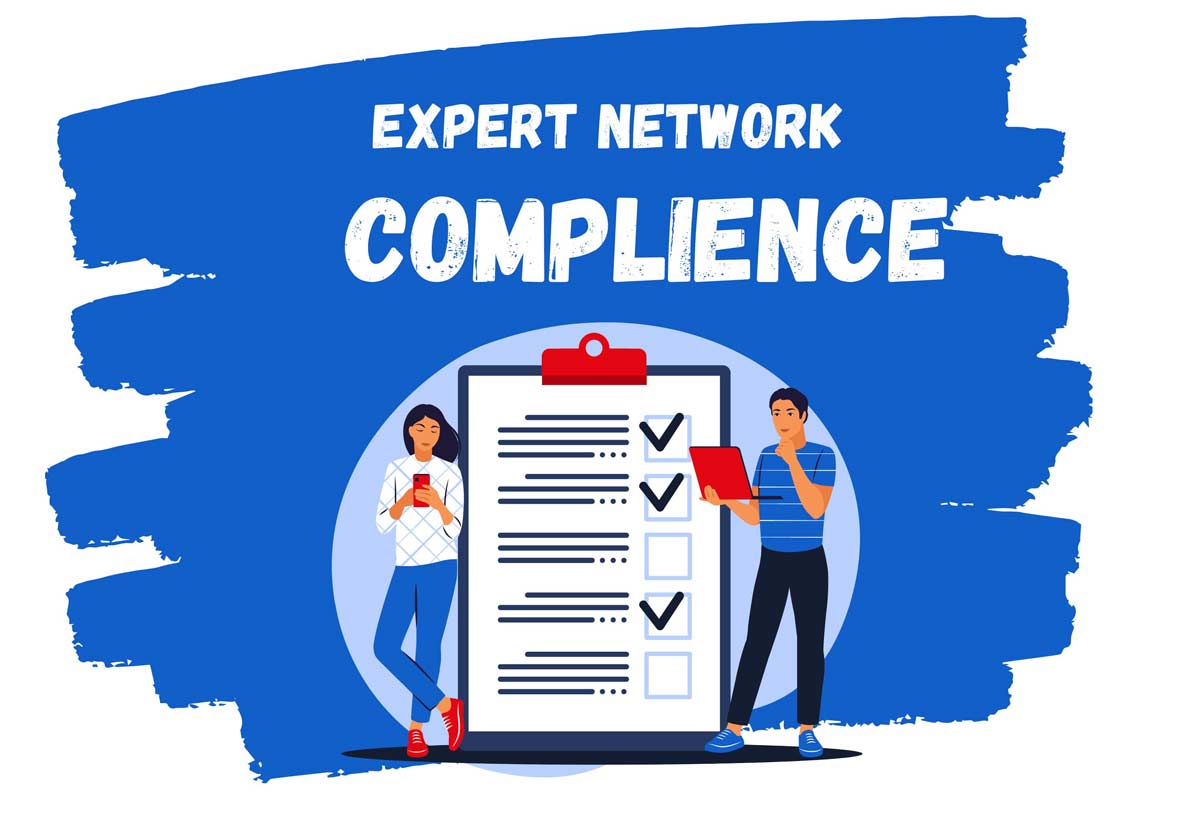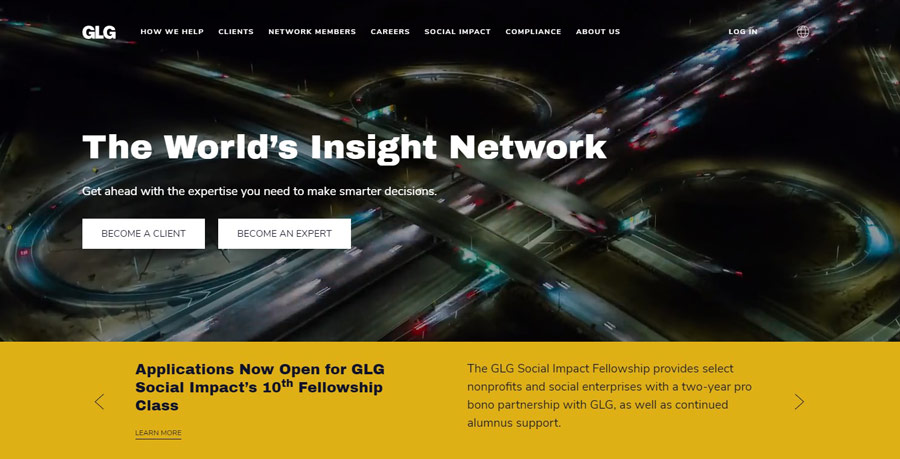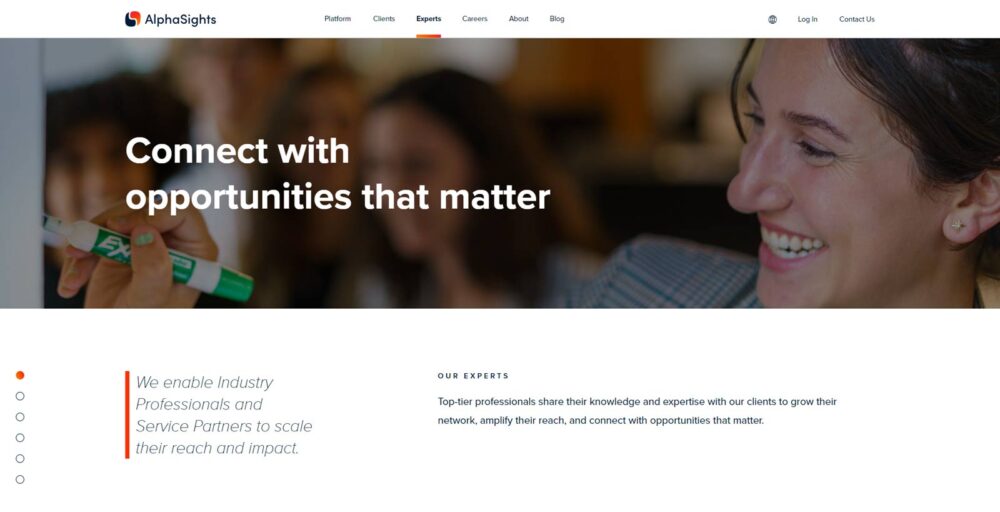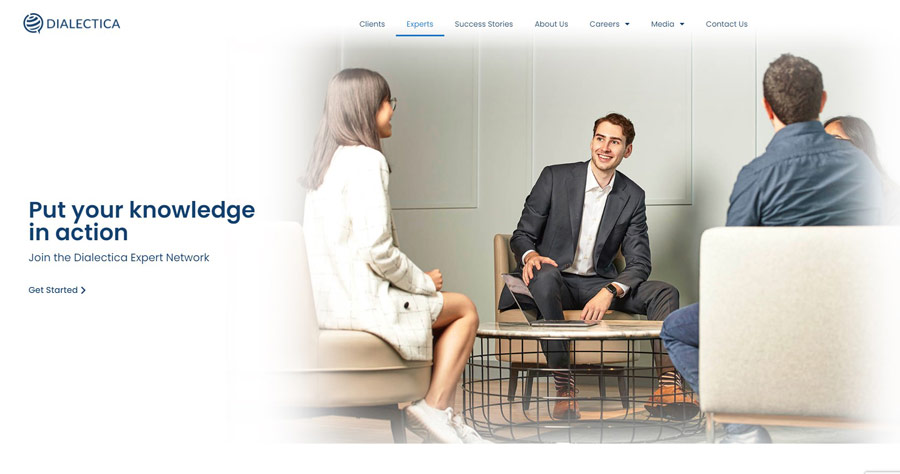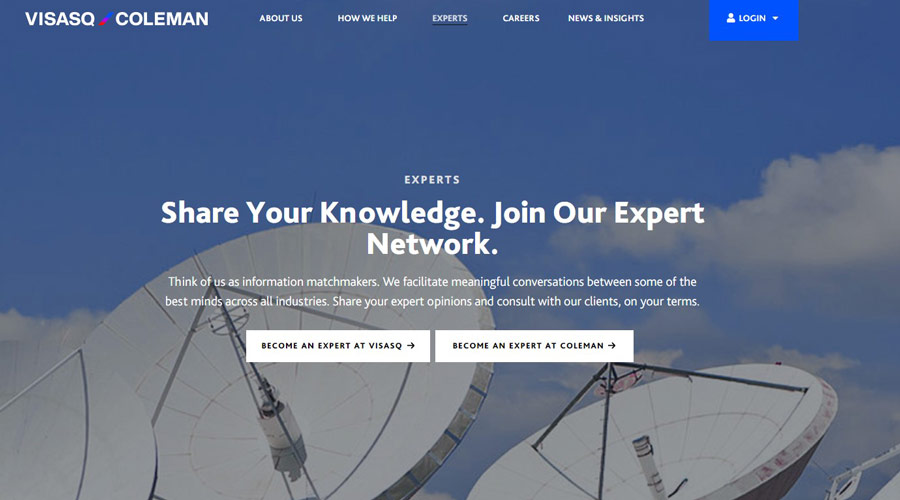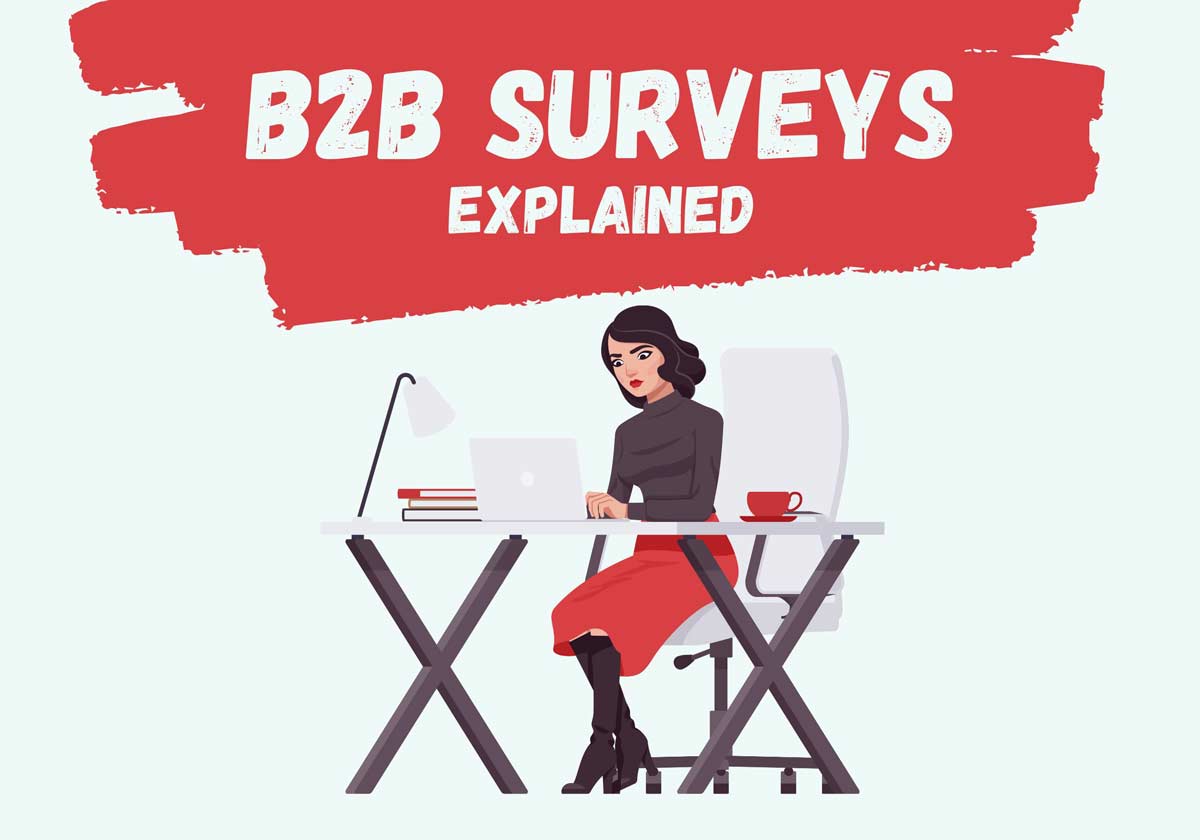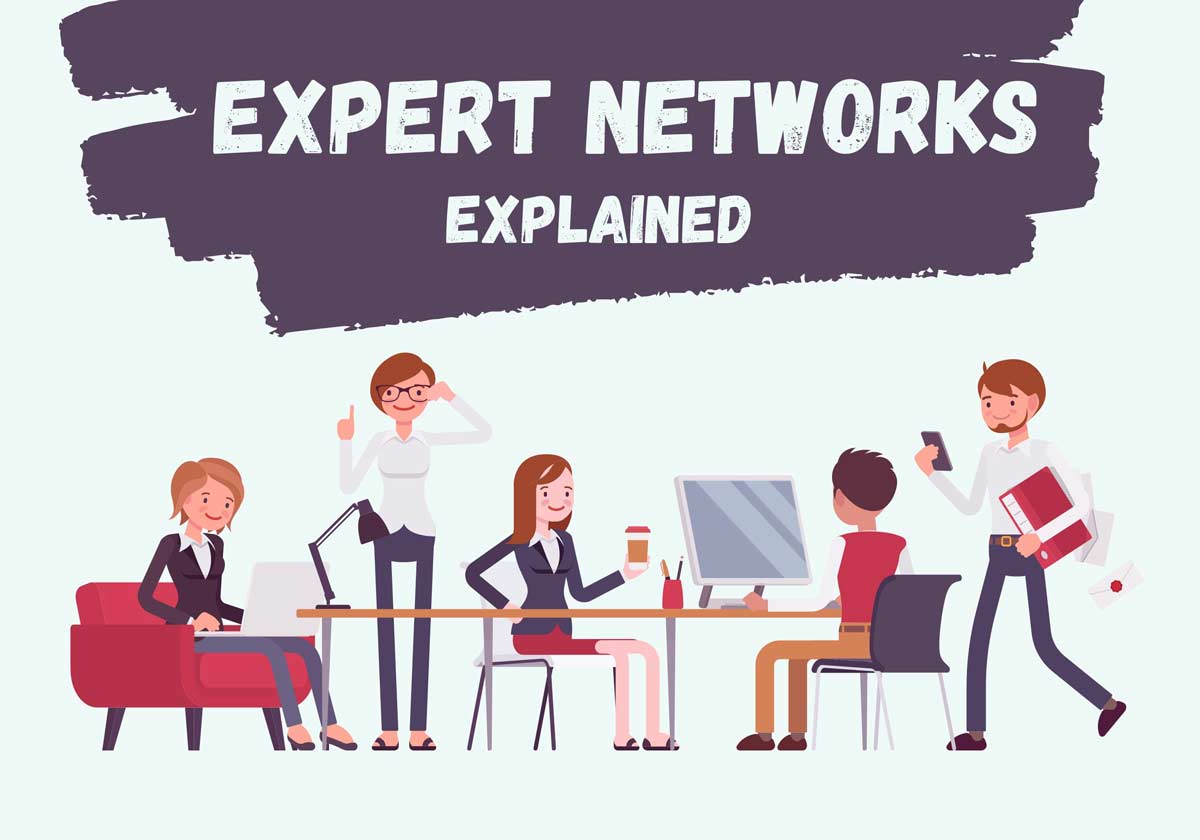Consulting for an expert network in your spare time can be a well-paid side gig. But what are you actually allowed to share without violating your employment contract? This article will go through standard compliance rules and examples of what you can and cannot share when consulting for an expert network.
This article is written for informational purposes only. It does not constitute legal advice, and should not be used as such.
Expert network compliance rules
When you register with an expert network or B2B research site, you’ll be asked to sign off on a set of rules of engagement working as a consultant within the network. These compliance rules are fairly similar between the largest players, such as GLG, Third Bridge and AlphaSights.
Can I consult on the side while being full-time employed?
If you take on consultation jobs within the same industry as you are employed, you need to be extremely careful. In many cases, you’ll risk sharing confidential information or answering in a way that causes a conflict of interest.
Most ad-hoc consulting jobs are done on a single-blinded basis, which means:
- The client knows who you are
- You don’t know who the client is
Basically, the client you are speaking to could be a client, supplier or competitor of your employer without you knowing it. So if you’re employed full-time, we highly recommend checking with your HR department before signing up for an expert network.
Compliance: The 5 golden rules of expert networks
- Do not share any confidential information
- Do not share any non-public information in respect of any publicly quoted company
- Do not share information that could cause a conflict of interest
- Do not discuss your current employer during a consultation
- Do not share the identity of the client or the subject matter of the consultation
In the next chapters, we’ll go through each section in more detail.
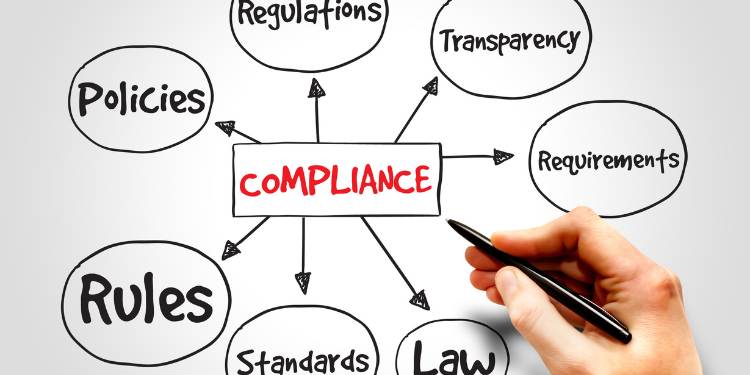
1. Confidential Information
You should never share any confidential information during an expert network call. What is considered confidential? Here are some examples (the list is not exhaustive):
- Personal
- Health records
- Passwords
- Employers and other companies
- Earnings forecasts
- Proposed financing and M&A transactions
- Product introduction plans and dates
- Short and long-term market strategies
- Technical and performance specifications
- Results of clinical trials
- Production and inventory levels
- Chemical formulas
- Company reorganization details
- Gain or loss of a major customer
- Jurisdictional
- Classified military information
- State or national secrets
- Regulatory
- Changes in current laws
- Future policy-making
Why you should never share confidential information
- Dealing appropriately with confidential information is vital for preserving your own integrity and that of the expert network’s clients
- By disclosing confidential information you will be in breach of your obligations to the owner of that information, and may also be breaking the law
- Inappropriate disclosure of confidential information may harm you, your current or former employer, as well as the expert network’s clients

2. Material non-public information & Insider trading
Under securities laws (including those in the United States, United Kingdom and China), you are prohibited from disclosing so-called “material non-public information” or “MNPI” to expert network clients. The aim of this is to reduce the risk of illegal practice of financial trading through having access to confidential information. Expert networks focus a lot on compliance training to avoid MNPI being shared, and we’ll go through a few examples of what is considered “material” vs. information which is generally available to the public.
How material non-public information (“MNPI”) is defined
- MNPI sometimes referred to as “inside information”, is a specific type of confidential information. In other words, all MNPI is confidential information.
- MNPI is:
- Precise information in respect of a specific company,
- that is not generally available (i.e. which has not been published in a way accessible to the investment community as a whole – for example, through a regulatory news service, through Bloomberg or by publication in the Financial Times or the Wall Street Journal),
- and that a reasonable investor would use to help them make investment decisions.
- If this information was generally available, it would be likely to have a significant effect on the price of an investment.
- Another way of looking at this is whether a reasonable investor would have considered the information important in deciding whether to buy, sell or hold a security. If the answer to that question is yes, then it is likely to be MNPI.
Information considered “material”:
- there is a substantial likelihood that a reasonable investor would consider the information important in making his or her investment decisions;
- a reasonable investor would view the disclosure of the information as significantly altering the total mix of information made available to investors; or
- the disclosure of the information is reasonably certain to have a substantial effect on the market price of the security (i.e. a company’s stock price might increase or decrease as a result of the disclosure).
Information is typically “non-public” if it has not been shared in a way that would make it available to all investors generally. Information is public after it has become available to the general public through, for example, a public filing with the SEC, another government agency, or a news reporting service or publication of general circulation, or after sufficient time has passed such that the information has been disseminated widely.
The circulation of rumours or “talk on the street,” even if widespread, generally will not, without more, constitute the required threshold of public disclosure.
MNPI you should never share on an expert network call
The following types of company information are generally regarded as being MNPI if it has not been made public:
- Financial information or results
- Dividend actions
- Mergers, acquisitions or tender offers
- New products or services
- The negotiation, win, extension, and termination of significant contracts
- Marketing plans and joint ventures
- Information related to unpublished clinical trials
- Changes in senior management
- Debt servicing, liquidity problems, bankruptcies or receiverships
- Key information related to a supply chain vendor
- An impending change in a company’s debt rating by a statistical rating organization
- Criminal, civil and government investigations and indictments relating to the company
- Events regarding the company’s securities (e.g., repurchase plans, stock splits or changes in dividends)
- Major litigation, litigation developments, or potential litigation
You should be particularly careful in respect of the information you have received from an officer or employee of the company concerned or if you have heard a “rumour” from a business contact or friend – any information obtained in this manner should not be disclosed.
The information above is not an exhaustive list, therefore, if you have any doubt whether the information is MNPI you should not disclose it.
Why receiving MNPI is a problem for expert network clients
Expert network clients are typically financial investors and may use the information you provide to help them make an investment decision.
Expert network clients do not want to receive MNPI because receiving such information will likely mean they will be restricted from trading shares in the company to which it relates for a period of time.
If the client were to receive MNPI in respect of a company and then trade in shares of that company they could be guilty of insider trading, which is a criminal offence in most jurisdictions.
Being unable to trade shares in the company may cause them financial damage ie they may miss the opportunity to make a profit (or avoid a loss).

You will likely never face a situation where you feel pressured to provide inside information. This is because expert network clients are subject to the same insider trading laws as everyone else, and crossing the line is not worth the risk. Most firms also make a heavy investment in compliance, which in turn places heavy scrutiny on expert network calls to keep both the firm and its employees out of trouble.
As with all things, it comes down to a combination of knowledge and common sense. Take your training, trust your senses, and when in doubt, play it safe.
3. Client Confidentiality
You’re also expected to keep the expert network call fully confidential, meaning you should not share the name of the company or the topic of the conversation with any outsiders. Also, keep in mind that most expert network calls are made on a so-called single-blinded basis, meaning that you as an expert don’t know the name of the client, but the client knows who you are.
Don’t share any of the following from an expert network call
- the identity of any expert network client,
- the subject of a Consultation with an expert network client, or
- the questions that an expert network client asks you during a Consultation or any information which a client provided to you during a Consultation.
4. Conflict of Interests
You should never participate in a consultation as an expert which would cause a conflict of interest for you.
How conflict of interest is defined
- A conflict of interest is a situation where your obligations to one party may conflict with your obligations owed to another party. Things that might give rise to a conflict of interest include:
- Obligations owed to your current employer
- Confidentiality obligations
- Conflicts which might arise in participating in Consultations with specific expert network clients
To identify potential conflicts you should review your current and former employment agreements, and any consultancy agreements and non-disclosure/confidentiality agreements between you and third parties. You should also review the subject matter of the Consultation or Forum Interview in which you are asked to engage.
When should you decline to participate in an expert network call?
(a) the topic is a conflict for you (for example, because you are under a contractual obligation not to discuss the subject matter of the proposed engagement); or
(b) engaging with the client in a Consultation is a conflict (for example because the client is a competitor of your current employer).
If during a Consultation, you identify a conflict of interest, you should terminate the engagement immediately and inform the expert network. You are also free to decline to answer any question during an engagement.
5. Employed specialists
You must not participate in a Consultation through the expert network if your employer prohibits you from engaging in external consulting. If you are uncertain, you should check with your supervisor or the Human Resources or Legal department at your company.
Why you should never discuss your current employer
- Your confidentiality obligations owed to your current employer may prevent this, and/ or
- discussing your current employer might be a conflict of interest for you.
6. Prohibition on discussing current employer
What can you discuss?
You can discuss, the industry in which your employer operates, current challenges in the industry, the identities of the main players, industry-wide regulatory issues, etc
What must you not discuss?
Your employer’s financial performance, business plans, operating models, management changes or anything else related to or including your current employer specifically.
7. Special categories of specialists
Specific rules often apply to certain categories of specialists. Here are some examples:
Medical professionals
- if you have participated in a clinical trial or provided consulting services to a person or entity, you may have duties or obligations to treat certain related information as confidential;
- you must not discuss unpublished clinical trial results, patient experience information or any other information regarding trials which is not yet public;
- If you are involved in an ongoing clinical trial, you may not discuss the ongoing trial phase until it is completed and the results are made public;
- you must inform the expert network if you are currently involved with any clinical trial or test or have been so involved where the results of such trial or test have not been publicly disclosed;
Government Employees or Officials
- if you are a government official or employee, you must not discuss government legislation, regulation, policy, contracts or any other business that you, as a government official or employee, would be in a position to vote upon or otherwise influence;
- you must inform the expert network if you are (or have been during the past 2 years) an employee or advisor or consultant to any government, government department, government agency or state entity.
8. Expert network compliance testing questions
Note that our recommendations are just examples of what you can expect in terms of expert network compliance. In this way, you’ll have an idea of what types of rules and regulations are considered before deciding on signing up for a network. At the same time, you should always make sure to comply with the specific regulations of each network you register with.
Keep in mind that compliance rules are not just a meaningless formality to protect the expert network. Compliance is also in place to protect your reputation and integrity as an individual expert.
Most networks will also take you through a set of compliance scenarios where you’ll be asked a set of questions to check your knowledge.
Example of an expert network compliance training question
You are asked by the expert network to participate in an engagement which will focus on your previous employer. You ceased to be employed by that company 2 years ago and you have had no contact with it since. Is this permitted?
- No. As a former employee, I can never discuss my former employer.
- Yes. I do not currently work for the company and therefore can discuss it freely.
- It depends. I need to check my old employment agreement to see what confidentiality obligations I am under. Provided those obligations do not cover the matters I am being asked to discuss, then I may participate in the engagement.
- Yes. 2 years have passed, so I am free to discuss the company now.
In this case, 3) is the correct answer. A significant amount of time has passed since you were an employee, so you are free to engage in the project as long as you are still bound by specific confidentiality agreements.
Interested in signing up for an expert network? Check our list of the best expert networks globally.
Do expert networks provide inside information?
No. All the major expert networks focus on compliance policies and procedures as key features of their service, which their clients can depend on. Rigorous compliance focus is one of the key selling points of using a professional expert network, as compared to firms sourcing their own experts.
Can I share information about my employer with an expert network client?
No, you may not share information about a current employer when consulting on behalf of an expert network.
Can I share information about a competitor of my employer with an expert network?
That depends on the nature of the information and how it was obtained. If the information is likely to be confidential or material non-public, you can not share any information.
I’m a normal employee – can I still work for an expert network?
That depends on your employment contract. If in doubt, speak to your HR department to find out what type of work is allowed. Remember that you’re never allowed to share information about a current employer or any confidential or material non-public information.
Why is compliance so important for expert networks?
Experts sit on a large amount of information about former employers, and sometimes it can be hard to distinguish between confidential and public information. Because of this, you can expect to go through rigorous compliance training when signing up as an advisor to an expert network.
Are there examples of expert networks providing inside information?
Back in 2008, there was an inside information case based on information facilitated by an expert network. Since then the industry has made an enormous effort to focus on compliance training and guidelines for its network members.
What can happen if I share confidential information through an expert network?
If the client were to receive material non-public information about a company and then trade in shares of that company they could be guilty of insider trading. Insider information is a criminal offence in most jurisdictions.
Why are expert network calls conducted on a single-blinded basis?
Many topics discussed will be sensitive and related to M&A activities linked to financial investments. If the expert is unaware of the identity of the client, the risk will also be reduced when it comes to sharing confidential information.

